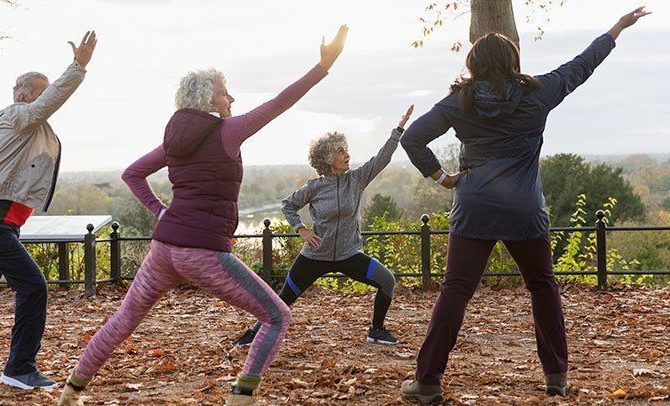
8 habits to improve the mental health of the over 60`s
Having a purpose in life, doing physical activity and learning something every day are habits that people over 60 should adopt to improve their mental health.
Reading, writing, talking, walking and completing crossword puzzles are all activities that help people over 60 stay more active. Many believe that being healthy is all about jogging daily, weighing 50 kilos and not eating fat or sweets, which is false. Each older adult is different and the important thing is that they do what they like according to their lifestyle and following the recommendations of their doctor.
These are eight habits that older adults should adopt in their daily lives to promote their physical and mental well-being, preserve their quality of life regardless of the passage of time and prevent changes in their mood that trigger depression, anxiety anguish or uncontrollable sadness.
-
Cultivate what you believe in: for healthy aging, it is key that you do things that you enjoy. If you have any religious or spiritual beliefs, for example, practice them.
-
Learn something new every day: Simple actions like memorizing phone numbers and carefully watching YouTube tutorials on unfamiliar topics keep you mentally active.
-
Establish routines: adopt healthy habits such as getting up at the same time every day, using the bed only for sleeping, limiting the time you spend connected to technological devices, sunbathing for a while each morning, walking thirty minutes in the late afternoon, no long naps and no stimulant drinks after 4:00 p.m.
-
Move: No matter your limitations, move your arms and legs. Getting around isn’t just going to the gym or playing a sport, it involves any movement you make, even the simplest ones, like walking around your house while doing chores or grocery shopping. Be aware of how far you are capable of going; don’t overexert yourself.
-
Keep in touch with other people: where possible, generate new ties and join groups with which you share tastes or affinities. Be proactive. The stronger these links, the lower the risk of anxiety, depression, and cognitive decline.
-
Express yourself: release your emotions, feelings and thoughts. Faced with the constant feeling of sadness, ask for support in your closest circles or go to a professional.
-
Have a life purpose: finishing school, overcoming an illness and seeing grandchildren or great-grandchildren grow up are life purposes. Having them, regardless of your age, makes you wake up every day and keep your spirits high to fulfill them.
-
Assert your rights and duties: decide and give your opinion. You deserve to be heard. Families should not make decisions for you.





Leave a reply